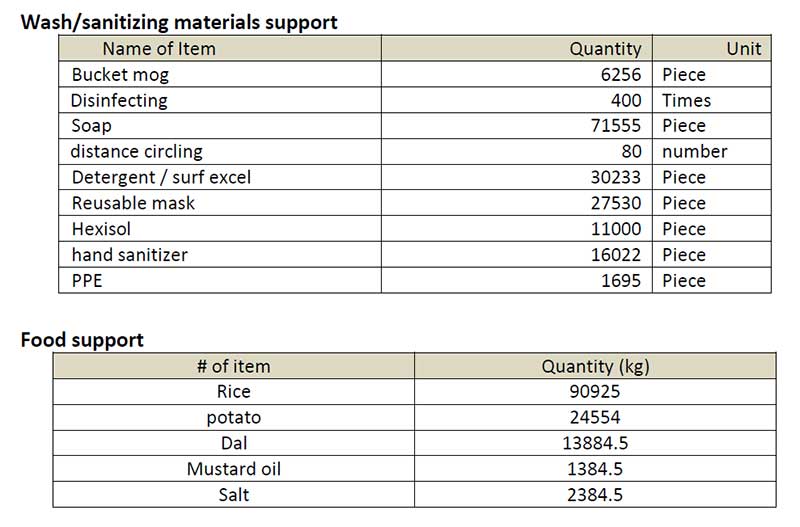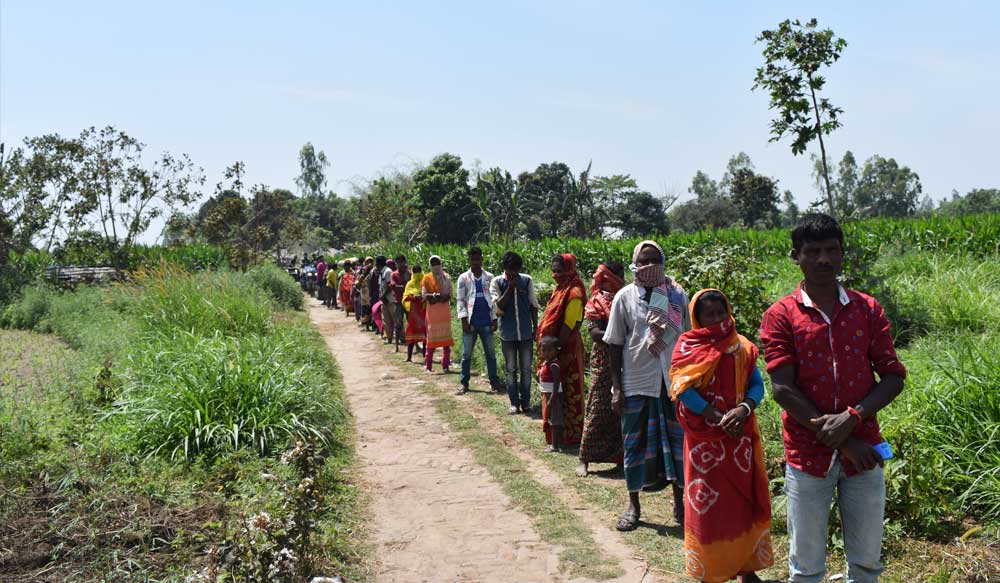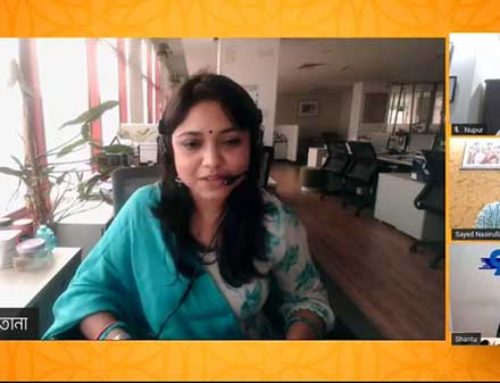Introduction of the organisation
Eco-Social Development Organization (ESDO) started its journey in 1988 with a noble vision to stand in solidarity with the poor and marginalized. Being a peoples’ centered organization, ESDO envisioned for a society which will be free from inequality and injustice, a society where no child will cry from hunger and no life will be ruined by poverty. During this long span, ESDO has adapted with the changing situation and provided the most time-bound services especially for the poor and disadvantaged. A community focused and people centered approach has been adapted by ESDO while consideration was given to the national policy and Sustainable Development Goals (SDGs) as its guiding principle and the aim of ESDO have been set up to seek an equitable society free from all discrimination.
ESDO is one of the most dynamic organizations expanding its development interventions across 2231 Unions, 129 Municipality, 273 upazilas under 49 districts & 7 City Corporation, 8 Division of Bangladesh, directly reaching more than 9 million poor and vulnerable people. Different need-based programs are aimed to enhancing the capabilities of deprived people in terms of social development, disaster facina, food security, agriculture, gender, nutrition, micro finance, health, environment, rights and governance, education and human development, and with empowering them to solve the problems that affect their lives and to cooperate with each other to resisting oppression and exploitation.
In case of emergency and humanitarian response, ESDO is basically starting its inception based on flood response-1988. From then to till now, ESDO have given first priority to response any kind of disasters and humanitarian in whatever places within the country. Still now ESDO have ongoing 8 disaster and 3 humanitarian response projects. Already ESDO have been responsed more than 50 responses including emergency and humanitarian projects. Some of the on going projects are- (i) Prevention of COVID 19 through awareness raising and basic protective equipment (PARBPE); (ii)Landslide and Flash Flood Risk Reduction for Cox’s Bazar”; (iii) Community Cohesion Project, Cox’s Bazar; (iv) Improvement of Ponds, Canals Across the Country Project (IPCP); (v) Implementation of Model activities for Disaster Risk Reduction through EGPP etc.
ESDO is very much familiar with downward of accountability mechanism and have understanding on CHS, Sphere and other humanitarian & accountability standards. At present, ESDO is working with institutional disaster response donor Start Fund Network for responding COVID 19 pandemic crisis in three districts- Panchagor, Thakurgaon and Lalmonirhat.
Programmatic interventions in response to COVID-19
Programmatic interventions:
The whole world is now fighting against the unseen soldier, Corona virus. Its creates an in-humiliation pandemic that cross all of the previous one and world have never been seen this types of pandemic in before. According to WHO, Bangladesh is highly riskable country for COVID 19 pandemic due to its population density, lack of medical facilities and most important things- lack of awareness knowledge among the community peoples. When first COVID 19 patients was found, from that time, ESDO has been starting awareness at community level within it’s working area. Now ESDO have selected a set of programme interventions for this COVID 19 response. Firstly, ESDO is trying to aware community people for practicing WHO recommended hand washing procedures. Secondly, we are staring deinfection of various place including bazzar, localities, wards through sprying blichin powder mixing water. We have already developed various awareness meterials and distributed among the people. For ensuring safety and security, we have been provided PPE for doctors, nurses and others health service providers, also police. For attracting mass people, we have already prepared awareness raising song and miking and publishing in urban and rural areas. Also a TV programme on COVID 19 issue is trying to captured that will be continuously broadcust through the local TV channel.
As situation is going to lock-down position, ESDO have intantaneously taken decision to stay with day labour, rickshawa puller, auto charger drivers, ethnic minority and dalits in order to survive them within this pandemic situation. ESDO have given a food package with hyginic materials and some cash distribution within its working area’s people from its own initiative fund along with others INGOs contributions.
The target population are mainly Ethnic Minority, Dalits, ultra poor, day labour, Doctors, Nurses, Police, others health service providers. The response size of population is 97554. We have been given the following inputs for this response:
Awareness materials
# of Banner installed- 240
# of Miking- 953
# of leaflet distribution-120800
# of poster – 28000
Hand wash demonstration – 40
PPE use guideline to hospitals -400
Awareness raising song – 120
TV programme on local level

- Food package supported – 13972 household
- Cash distribution – 3000 household
Challenges-(i): Lockdown at all lelvel including district, upazila and community level. Mitigation: Through proper communication with district and Upazila administration and taken approved letter from them. Chanlleges-(ii): To avoid gathering in the distribution place in some cases. Mitigation: Now we are making circling into distribution yard and also maintain social distance accordingly.
Future outlook and recommendations
Lessons learn:
- Information is one kind of aid that has an significant role in case of pandemic response
- Deinfection and hand washing demonstration is appreciated by community people as well as government officials.
Anticipated future challenges:
- Distribution of food package through selecting appropriated vulnerable household within this short period.
- Coordination among various aid agencies including government, non-government engencies/institutions/ organization and many others personal or team initiatives.
Some specific issue for advocacy:
- Food distribution system should be ensured through establishing proper distribution plan and its implementation
- Local level small entrepreneurship should be come under government subsidy to recover local economic.
See more of ESDO’s work in COVID-19 response







